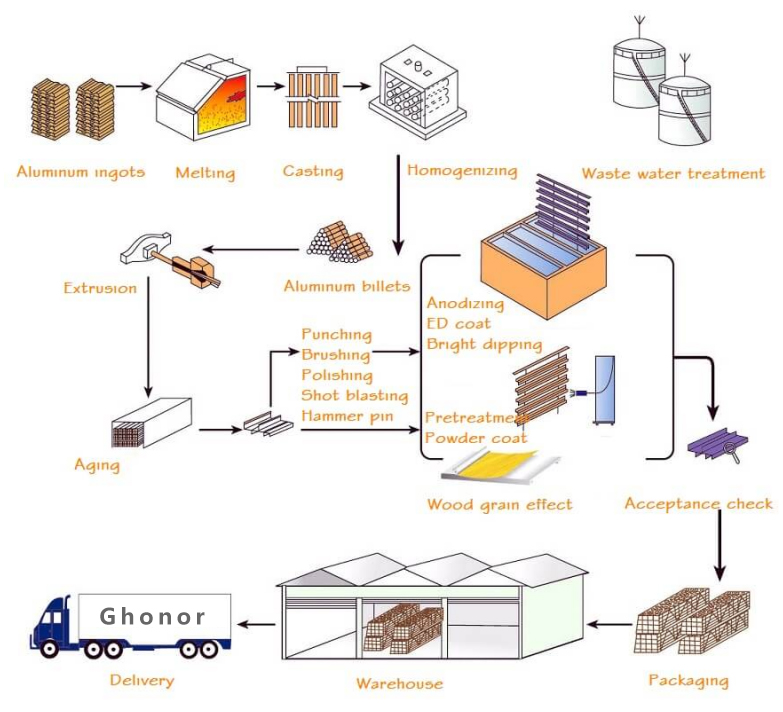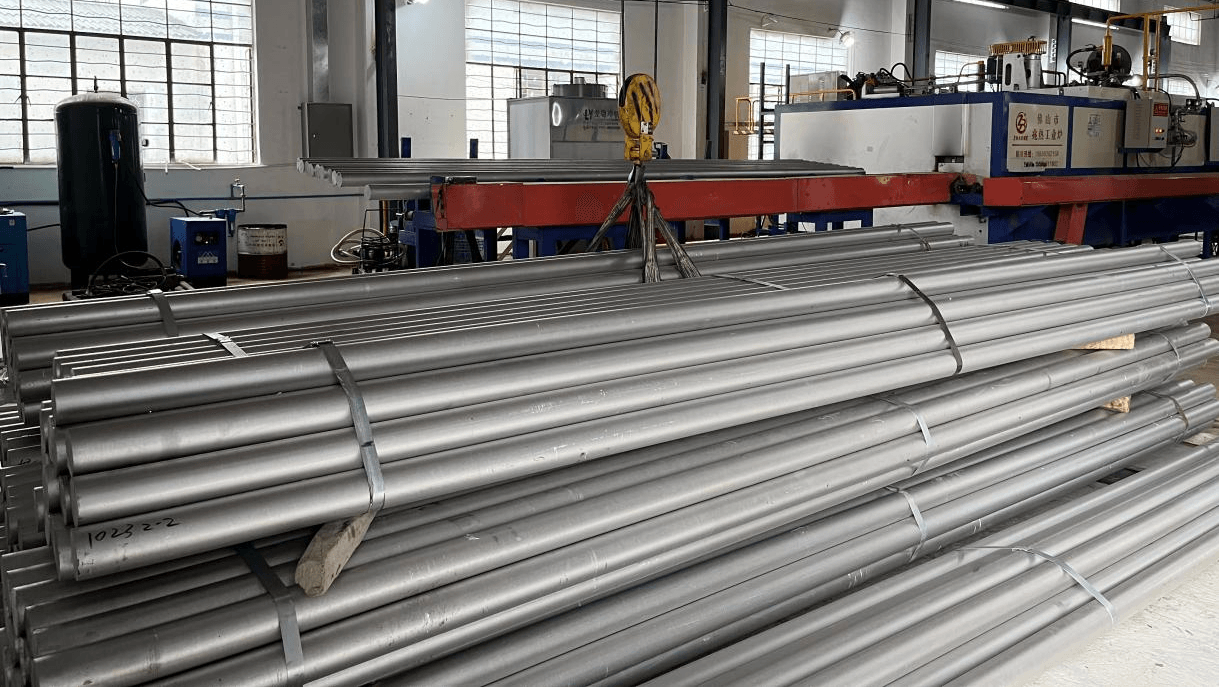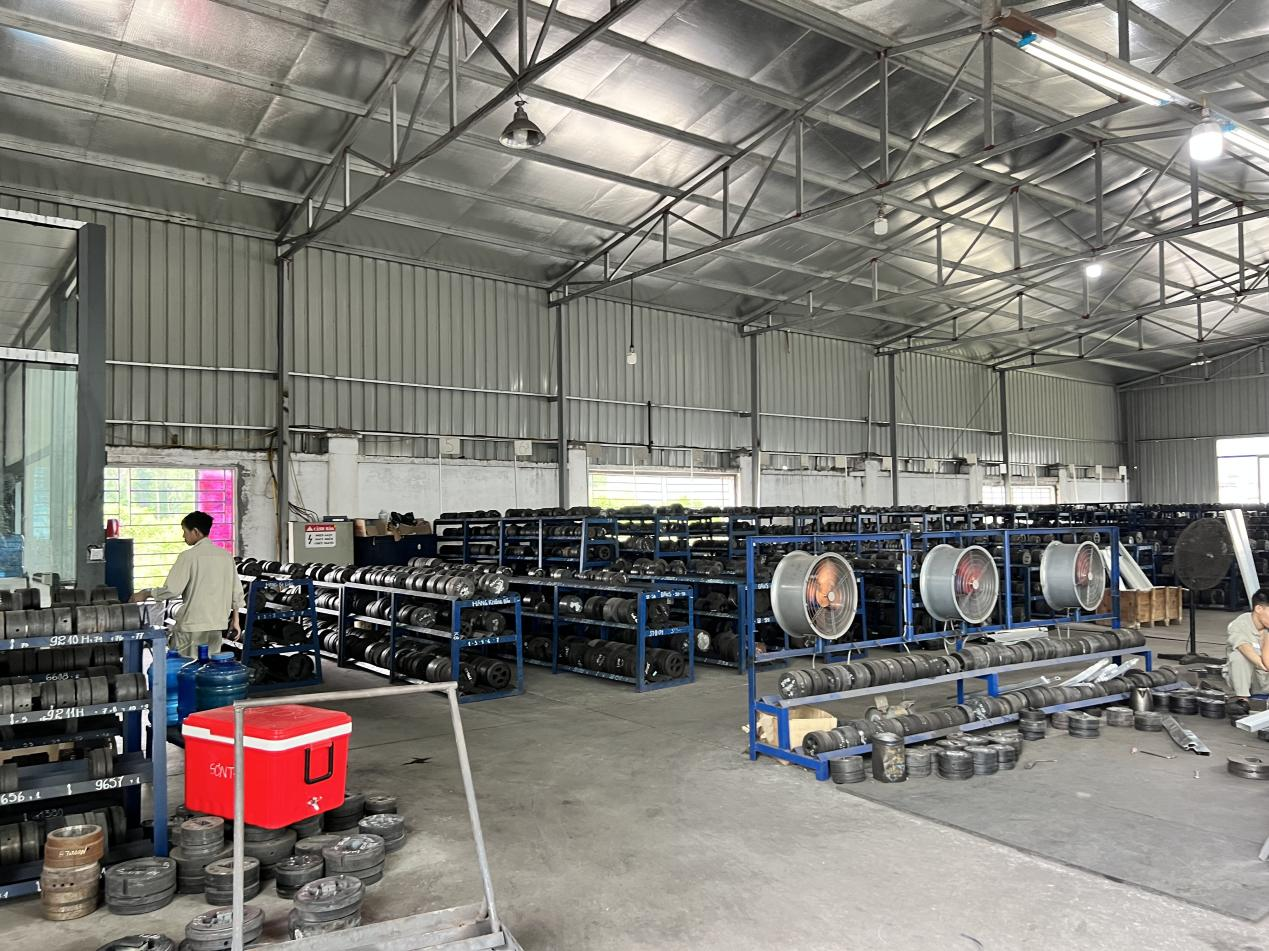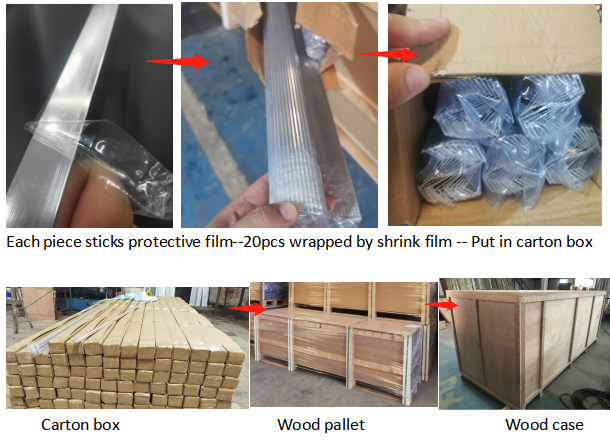Aluminum Production Process
Aluminum alloy is one of the most important metals. The profile is extremely malleable, and the shape can range from simple to complex and interlinked styles.

6063 aluminum alloy has good performance in extrusion, known for its corrosion resistance, malleability, and for being lightweight. They are widely used in construction, transportation, electric power, the chemical industry, and other industries.
The chemical element content range is as follows:

Melting
The raw material AL99.70 or higher quality aluminum ingots (GB/T 1196-2008), add Aluminum-Silicon alloy ingots and magnesium ingots for heating with high temperature. Manufacturing processes often require aluminum ingots to be heated to their melting temperature of 660.4℃ ~ 760 ℃. The aluminum will melt almost immediately once it reaches this temperature.
Casting
Slagging off after smelting and refining, use the same casting process and different molds to produce Aluminum Bar with different diameters.

Extrusion
Choose the product mold and extrusion.
Too high or too low a temperature will affect the shape of the aluminum alloy mold directly. Therefore, the heating temperature of the aluminum bar is generally controlled at 400℃ to 520℃.
The working temperature of the extrusion machine is 360℃ to 460℃, and the extrusion speed is 20m/min - 80m/min. Using an extrusion die, extruded various profiles with an extrusion machine, and quickly air-cooled or water-cooled, straightened, sawed, and loaded them in the frame.

Aging
Aging is the process that transforms the supersaturated solid solution to precipitate particles that can greatly enhance the strength properties. Technical Process: 190℃- 195℃ to keep warm for about 3.5 hours, and then adopt the forced-air-cooling process.
Punching
We need to make them punched as requested, and mechanical process to get different holes to match the need. Such as round holes, triangular holes, King holes, square holes, customized logo holes, etc.
Anodizing (coloring)
Aluminum is ideally suited to anodizing.
Anodizing is an electrochemical process that transforms metal surfaces into a decorative, hard, durable, high-performance aluminum anodized finish. Such as matte, shiny, brushed, polished, powder coating, etc.
Anodizing is done by immersing the aluminum in a bath of acidic electrolytes and passing an electric current through the medium. The cathode is installed inside the anodizing tank; the aluminum acts as the anode, allowing oxygen ions to be released from the electrolyte to combine with the aluminum atoms on the surface of the anodized part.
Cathode: 2H + + 2e → H2 H2 is released in the reaction
Anode: 4OH - 4e → 2H2O + O2
The aluminum used as the anode is oxidized by the oxygen precipitated on it, forming an anhydrous Al2O3 protective layer. Excellent performance is formed on the surface of the aluminum substrate. Metal ions are filled into the Al2O3 protective layer, so that the anodizing film shows different colors. The product will enjoy a long lifespan and maintains its color.
Packing
In order to better protect product safety, the general packaging method is a carton, or wooden frame and wooden box, so that our safety rate reaches 99%.
